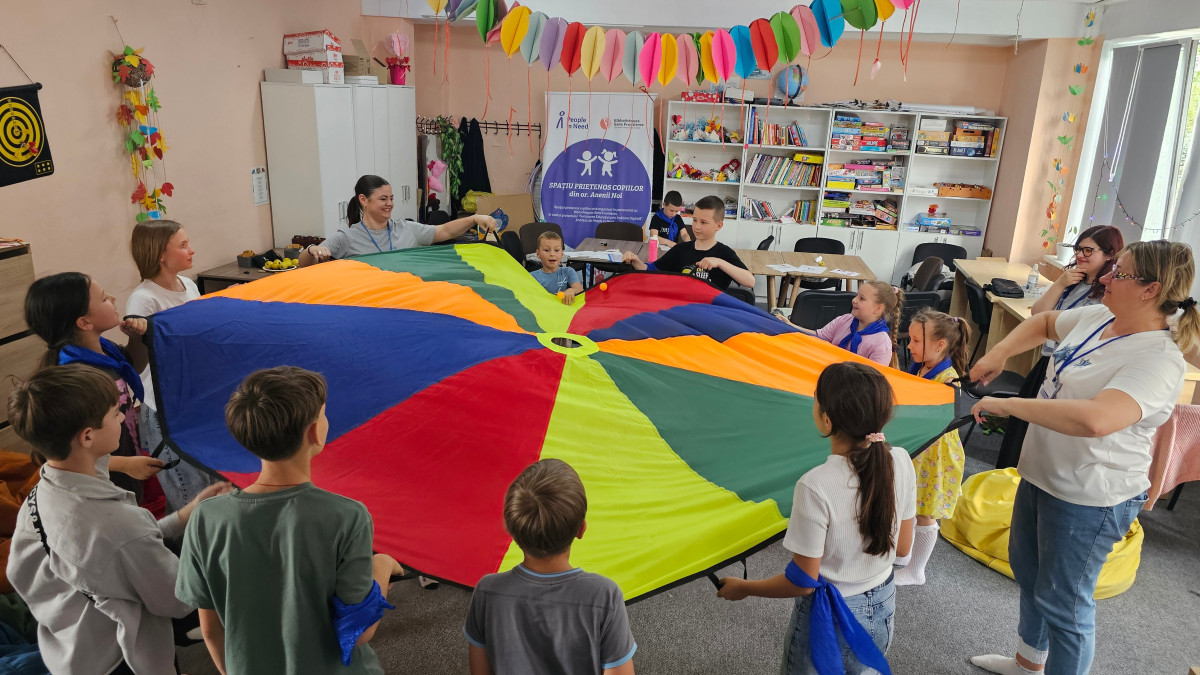“Here, I learn to understand my emotions”: Psychosocial support is helping children affected by war
Published: Jun 30, 2025 Reading time: 3 minutes Share: Share an article
In an uncertain world, sometimes a simple act of emotional support can mean the difference between fear and trust, between isolation and friendship.
Inside a bright classroom at “A. Pușkin” Theoretical High School in Anenii Noi, a group of children sit in a circle, each with a colorful sheet of paper in front of them. They’re drawing emotions. But this isn’t just an art class—it’s part of a psychosocial support session run by our colleagues in People in Need Moldova with financial support from the European Union.
Throughout the summer holidays, our psychologists conduct interactive emotional support sessions for children and teenagers from Ukraine, as well as those from host communities. These activities support adaptation, integration, and emotional development.
“I really like it here,”says Daniil, a 12-year-old boy from Anenii Noi; he has been attending the centre with his younger sister for two years now.
“For example, today we learned how to control our emotions and what to do when we feel angry.”
“What I liked most was the activity where we drew our emotions,”adds his 8-year-old sister, Masha.
Each session includes individual exercises, group games, and guided discussions, addressing important topics such as stress, emotional complexity, communication, friendship, and conflict resolution. The full course spans eight sessions and is implemented in both Child-Friendly Spaces and in summer camps in Chișinău. The course is organised by the “B.P. Hasdeu” Municipal Library in partnership with Chișinău City Hall.
For Eva, a 12-year-old girl who fled from Odesa with her mother, these meetings are far more than just engaging activities—they are a step toward healing.
“I’ve been coming here for two weeks, and I really enjoy it. I look forward to the sessions with the psychologists,”Eva says.
“Today we learned about how to manage our emotions. These topics really help me.”
Eva arrived in Moldova during the first days of Russia’s war in Ukraine. She still remembers seeing armored vehicles on the streets and rocket explosions, as well as hearing air raid sirens in her hometown. The emotional impact of those moments doesn’t fade easily. But safe spaces and meaningful activities offer her a place to rebuild her inner peace.
“This support is essential for children's mental health. It helps them regain emotional balance and develop in a healthy way,”explains Polina Stratev, a psychologist with People in Need Moldova.
These sessions are more than just emotional learning—they are early interventions that can prevent more serious psychological issues. Children who have experienced trauma are closely observed by professionals, and if necessary, parents are advised to seek specialized psychological support.
The emotional support sessions are part of the PLACE II project, funded by the European Union and implemented by People in Need Moldova, in consortium with ACTED Moldova, REACH (IMPACT Initiatives), the Norwegian Refugee Council (NRC), and INTERSOS Moldova.



